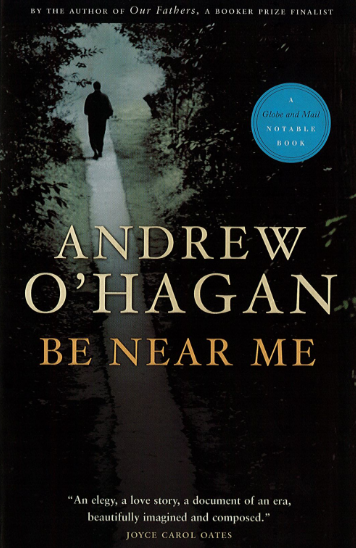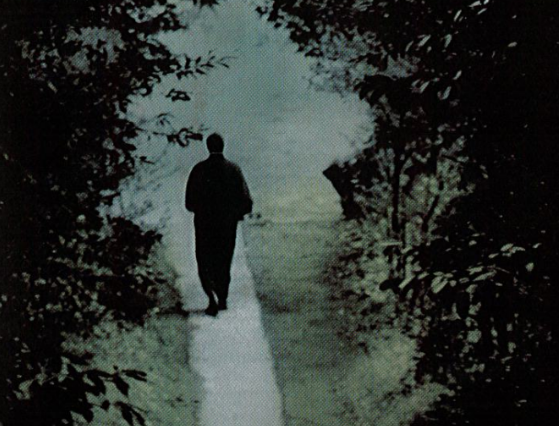
Father David Anderton is the new parish priest of the economically depressed Scottish coastal town of Dalgarnock. He’s thoughtful and book-smart. But he’s also naive and demonstrates poor judgment. When he ignores the principle of maintaining boundaries in pastoral ministry and befriends two troubled teens, he hurtles towards disaster. Page by page, the reader sees with growing clarity that Father David is on the path to ruin. As he’s not only a flawed character, but human and fundamentally likeable as well, one almost wants to reach into the pages and give him a good shake, in order to stop him in his tracks. That’s not possible, so what we’re left with is a lyrical story of human loneliness, loss, class and national division, and precarious faith — all against the backdrop of a savage world.
Father David is a middle-aged Catholic priest in the first decade of the current century. He’s half Scottish and half English, but has spent much of his life immersed in the privileged world of upper middle-class England — a life that the locals of Dalgarnock disparagingly characterize as posh and foreign. His mother is a successful novelist, his late father was also accomplished, and as a boy he was educated at a Benedictine boarding school, before coming-of-age at Oxford. We’re introduced to snippets of his youth through flashbacks.
David’s mother, based in Edinburgh, is emotionally measured in her interactions with her son, and fundamentally more involved in the lives of her fictional characters than in his life. But when he needs her, she’s there for him in practical and encouraging ways. When he’s a student at the Benedictine boarding school, she even grants him his wish of riding to a school event in style by hiring an elephant for him. It’s a colourful scene of British eccentricity. After David is ordained, his mother — who doesn’t share his Catholic faith — gives him a piece of advice that serves almost as a premonition of the disaster that will follow in the novel. “I advise you to put your faith in strangers. Sometimes it’s nice to just be on the surface of things,” she says. David responds: “Not easy for a priest.”
During his Oxford days in the late sixties David is involved in left-leaning causes, such as protests against the war in Vietnam and workers’ rights. Yet as a priest it seems as though he’s often more interested in the theory of outreach to the marginalized than in actually ministering to them in practice. When he’s assigned to a parish in Blackpool, he gains a reputation of spending far more time with a small circle of friends drinking wines carefully paired with food, enjoying good music and erudite discussions, than tending to the pastoral needs of his parishioners. At times, Father David comes across as a pretentious aesthete oblivious to the pastoral needs around him. At other times, he’s more aware of injustice and wants to right a wrong that nobody sees or about which nobody cares. At a wedding in his church, for example, the town’s outcast shows up for Communion. He stands out like a sore thumb among the guests. It’s a scene that gives Father David depth:
The service ended with applause and cheering of a sort that might be thought, on a rainy day, to have taken too little account of the perpetual suffering of Christ, whose journey to Calvary was depicted at intervals on the walls of the chapel. At the rear of the line of tanned youths coming to Communion was Mr. Savage, the old communist, who shuffled towards me with his plastic bags. This time he asked for two hosts, one after the other. ‘I can’t do that. You’re not hungry, are you?’ I whispered.
‘No,’ he said. ‘Just tired.’
The bride’s mother saw the old man coming out of nowhere and she looked confused and then faintly repelled. I saw her examine the back of his raincoat and then point him out to a group of men, as if to ensure that he couldn’t harm the proceedings. She did it swiftly with a single painted finger as if she recognised his type and hated his coat. I watched him for a second over her shoulder as he walked to the door and stood in the shadows.
One of the most mutually life-giving relationships in the novel is between Father David and his housekeeper in Dalgarnock, Mrs. Poole. Father David’s erudition and his appreciation of the arts is something that the working class and straight-talking Mrs. Poole pokes at, but also appreciates. Cleaning the rectory for Father David at St. John Ogilvie Church is like taking private lessons with an esteemed teacher and it’s also an escape from her grim home life. She learns about music, practices French and peruses works of art, antiques, CDs and books with which he fills the rectory. She tends to a rose garden with Father David and comments sardonically on his lack of piety and penchant for hedonism. It’s a wonderfully portrayed relationship. Mrs. Poole displays an inherent deference for clergy — more to the concept than to the person — but she isn’t subservient at all. She stands her ground and isn’t afraid to give Father David feedback on his ministry.
While Father David’s relationship with Mrs. Poole is an example of a healthy one, his involvement with two fifteen year old students, Mark and Lisa, is quite the opposite. The boisterous, unruly pair first appear in a World Religions class at their high school. The class had recently visited a mosque in Glasgow to learn about Islam, but the field trip did nothing to make Mark and Lisa any less prejudiced against Muslims. Be Near Me is set against the backdrop of the war in Iraq to topple Saddam Hussein and the trauma of the September 11th terrorist attacks. The teenagers make a series of hateful comments against Muslims and this riles Father David. He tries to change their perspective, but to little avail. Yet there’s something in their youthful passion, zeal and authenticity that also draws him in. It reminds him of his youth. Mark, in particular, makes him recall an old friendship from his Oxford days.
Mark and Lisa are drawn to Father David — they befriend him and persistently seek his company. The pair shoplift from local stores, consume both alcohol and drugs at leisure and Mark often behaves like a thug. Father David allows himself to be drawn into this wayward teenage world. Sometimes, he invites the two to outings and they go for rides around town in his car. As he is increasingly involved in their juvenile experiences, he begins to neglect his parish duties — and Mrs. Poole calls him out on that. She also sees that trouble is brewing when he is oblivious to it.
There could be a way for a priest to minister to troubled teenagers like Mark and Lisa, but it would involve setting clear boundaries. Father David doesn’t have any. To make matters worse, for the most part his interactions with the two don’t stem from pastoral concern. If anything, Father is plugging the hole of his own loneliness, and a midlife crisis of sorts, by befriending these two. It’s completely wrong, absurd and selfish — a man in his fifties hanging out with fifteen year old kids as their best friend. As educated and as cultured as he may be, Father David also proves himself to be malformed and immature. He fails to understand that as the adult, the full burden of responsibility is on him to set and maintain boundaries.
Be Near Me might as well be a cautionary tale used by diocesan safe environment offices. But it’s also quite a lot more than that. Andrew O’Hagan paints a complicated picture of the downtrodden Scottish working class. They live harsh lives in the post-industrial world. They are the forgotten ones of globalization. But many of them — especially the men — are also brutish, viscerally prejudiced and prone to violence — with or without alcohol in their system. The list of the hated is long: Catholics, Muslims, refugees, the English, the middle-class, to name the most widely despised groups. In this story, the victims — the downtrodden workers — are also perpetrators.
The novel is set in fraught times. The fear of terrorism in the wake of 9/11 and the wars that ensued, the crumbling optimism of a globalized world, as well as the emerging crisis of abuse in the Catholic Church frame the story. O’Hagan approaches these difficult themes and the complex characters who are shaped by them with care, nuance and insight.

Be First to Comment